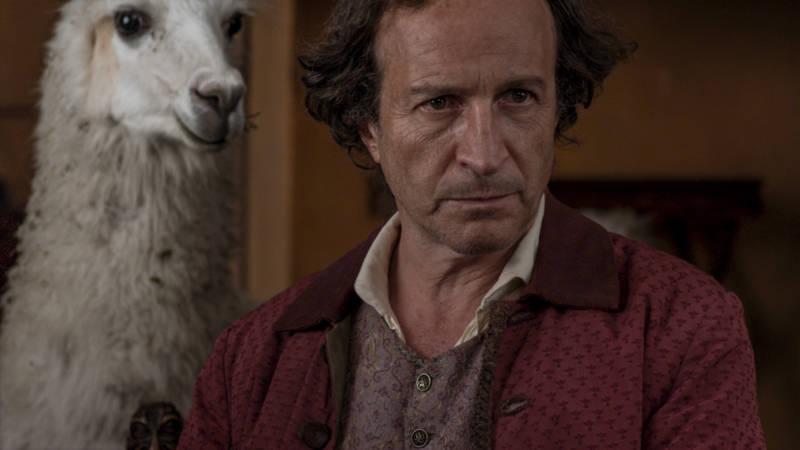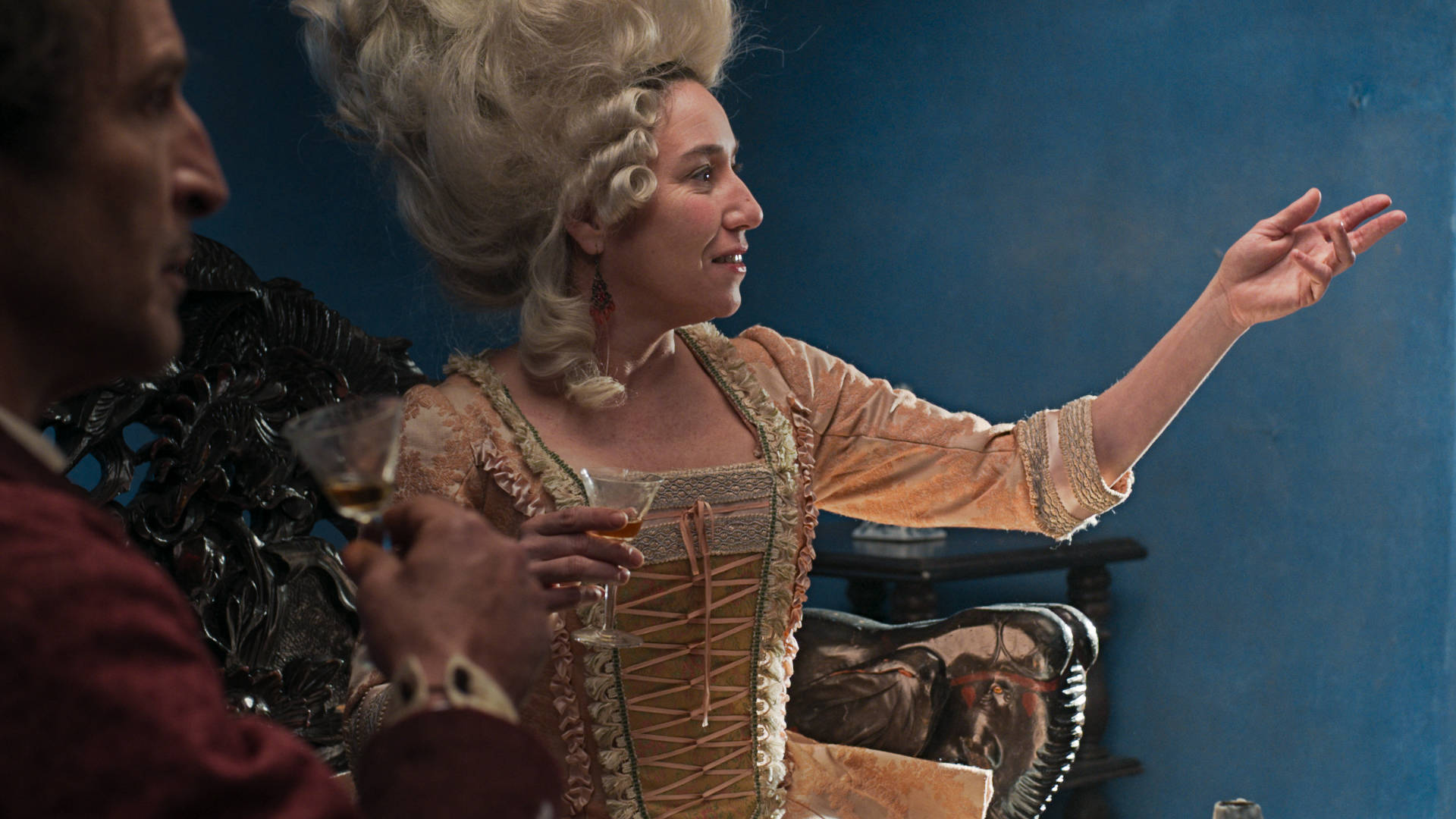Every now and then, there emerges a film director who seems almost helplessly original, for whom making movies means reinventing the most basic elements of film grammar. One thinks of Orson Welles, Chantal Ackerman, Stanley Kubrick, and, more recently, Lucrecia Martel. It may have taken the New Argentine Cinema luminary a decade to follow The Headless Woman (2008), but her latest film Zama marks a brilliant advance for one of contemporary cinema’s most distinctive stylists. She appears in person multiple times in the Bay Area this weekend, at BAMPFA in Berkeley (April 22) and YBCA in San Francisco (April 23).
Martel’s earlier films—all of which screen in 35mm at BAMPFA over the coming weeks—burrow deeply into the Argentine bourgeoisie’s psyche, with characters drifting through threshold states of adolescence and midlife crisis. Not since Michelangelo Antonioni’s prime has disaffection seemed so perilously seductive, with a pervasive sense of decay felt at every level of composition. Indeed, Martel displays an almost preternatural sense for the way sounds and images can be combined and pulled apart to activate and envelope the audience’s affective experience, such that story comes to seem ancillary to the raw stuff of curiosity, dread, confusion, and desire.

In a 2005 profile fittingly titled “In the Thick of It,” critic Kent Jones tempered his admiration for Martel’s filmmaking chops by noting that the self-contained quality of her first two films made it difficult to see her next move. As the 18th century-set Zama amply demonstrates, however, the hermetic style lends itself to distant imaginings. More particularly, Martel’s poetics of dislocation are well suited to a corrosive historical account of colonialism.
The locus of this malaise is Don Diego de Zama, a magistrate for the Spanish crown pining to be transferred from his backwater post in present-day Paraguay. The plot is the unraveling of his plot, with Zama biding his time in a series of increasingly hopeless ploys for promotion. A supremely slippery antihero, by turns pathetic and tragic, reticent and cruel, morally compromised and most assuredly not “relatable” in the Hollywood style, actor Daniel Giménez Cacho nonetheless evokes the character’s all-too-human desperation. Marked as a voyeur from the first scene, Zama’s power is inseparable from his impotence.
Martel adapted the script from Antonio Di Benedetto’s 1953 novel, a modernist landmark only recently published in English translation. The novel would seem unpromising material for a film given its densely matted first-person narration (notions of unreliable narrators and dramatic irony don’t even begin to suggest the chasm that Di Benedetto opens between reader and character). Remarkably, though, Martel achieves the same kind of disjunctive effects in the eccentric framing and cryptic details that make every shot its own mystery.

From a governor’s bright nail polish to a whining drone periodically heard on the soundtrack, Zama is freely anachronistic. In one scene, we unexpectedly find ourselves granted access to a minor character’s thoughts. In another, the camera is momentarily fixated on a horse’s mute gaze. As a result of these peculiar distancing effects, we are neither identified with Zama’s plight nor free of its foreboding. The character’s final descent is no less harrowing for its eerie calm, as if several Werner Herzog movies’ worth of lunacy had been distilled into a few spare sequences.



